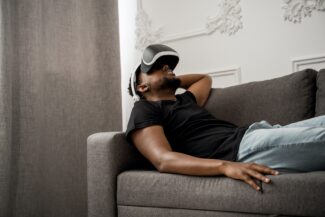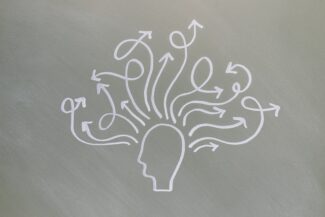As we age, do we get wiser and less reactive? Does anxiety decrease with age? Who can remember their parents or grandparents griping about “kids these days”? Every generation seems to assert negative qualities to younger generations and claim they will not fare well in the world.
Today’s younger generations may do fine, but research has actually found recent increases in anxiety in younger generations. This has occurred while rates in older adults have stayed low. So then are kids these days doing okay?
Research found that anxiety in young adults jumped almost 7 percentage points between 2008 and 2018. This reveals a trend that came about prior to the COVID-19 pandemic.
A more recent CDC study found an alarming difference for younger compared to older adults. They found that 63% of adults between 18 and 24 reported symptoms of anxiety or depression. Only 8% adults older than 65 reported these symptoms. So does anxiety decrease with age? Perhaps, but it certainly appears higher in youth currently.
These studies do not measure possible reasons for this spike in anxiety and depression. So what accounts for this difference? Some seem to suspect social media plays a large role, but findings on social media impact on youth are actually nuanced and mixed.
Others propose that increased uncertainty for world events (e.g., terrorism), economic uncertainty, and increased pursuit of extrinsic reward are contributors. Some social psychologists also propose that changes in parenting styles over time have contributed to individuals being less prepared for stress and social challenges. More research appears needed to truly pin down reasons why.
Like many mental health difficulties, anxiety is also impacted by individual differences in learning history. This could be good news for clinician purposes. In our work, we strive to help people respond to their difficulties differently. Despite the overall increase in anxiety, we can still do our best to help each client at a time.



